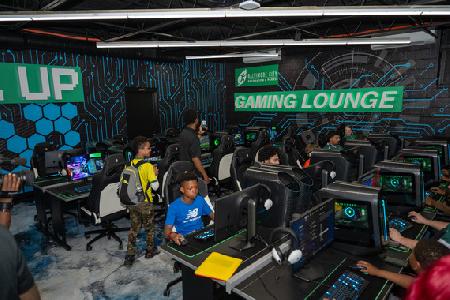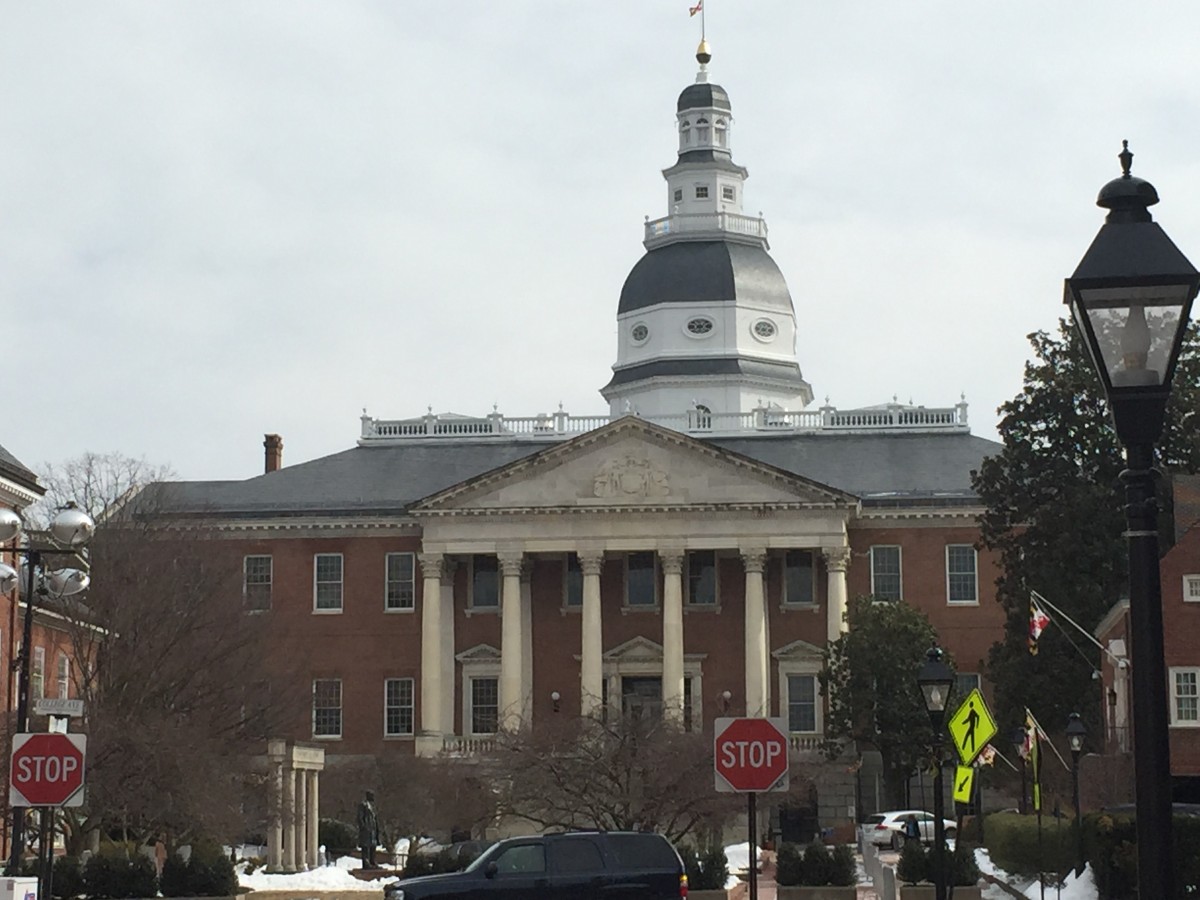Del. Dereck E. Davis woke up on wrong side of the bed.
Davis, who represents District 25 (Prince George’s County) in the Maryland General Assembly, has been chair of the House Economic Matters Committee since 2003. Since 2016, he has been involved in negotiations to bring 5G network technology to Maryland. That technology—which promises a wireless connection equivalent to what you can experience today with direct fiber—will largely depend on the installation of new, small cell antennas attached to light poles every few blocks, connecting users on the ground to the larger cell towers that currently carry the 4G network.
Since these small-cell antennas will be ubiquitous in densely populated areas, there are potentially complicated rights-of-way and fee structures to negotiate. Virginia and Delaware have already passed legislation allowing carriers to install small cells statewide without negotiating with municipalities and counties—a hurdle that, according to industry stakeholders, would significantly impede the process.
But representatives from Maryland’s counties and municipalities, including Baltimore, argued at a hearing in Annapolis last week that House Bill 654—sponsored by Del. Davis—goes too far in stripping them of traditional zoning authority.
“I’m telling you now,” Davis testified last Thursday, addressing his own Economic Matters committee from the testimony table, “I woke up on the wrong side of the bed, everybody.” Davis expressed frustration that long-running efforts to come to an agreement on how to deliver 5G to Maryland have been stifled. “What we have here is a power struggle—a turf war,” he said. “This is about control, this is about who’s going to call the shots. That’s what this is about.”
The Maryland Association of Counties and the Maryland Municipal League oppose Davis’ bill. Montgomery County Executive Marc Elrich does, too. He testified that counties want some control over where the new antennas go up. “We’re not saying we want to be able to say no, but we want to reserve some control over placement, heights, distances between poles, and I think that’s important,” Elrich said in testimony Thursday.
The fiscal and policy note for HB654 states that, “[t]he actual effect on local revenues and expenditures cannot be reliably estimated; however, in some jurisdictions, the effect is likely significant. The effects are made more significant by the bill’s general preemption of local zoning authority, fee setting authority, and limitations on wireless provider liability.”
It’s exactly that preemption that seems to have Baltimore’s City Hall concerned. Victor Tervala, chief solicitor for the city, testified that Baltimore already has 600 small cells installed and is reviewing applications for 120 more. “The idea that [5G carriers] can’t come into Maryland and install is just belied by the facts,” Tervala said, noting that the central question in the small cell debate is, “Will Maryland local governments have to cede control over local land use to corporate interests? I’m not exaggerating that. They’re asking you to do what Congress wouldn’t do—basically take our zoning away from us.”
A competing bill from Del. Mary Ann Lisanti (District 34A, Harford County), would establish a system to allow small cell installation. Lisanti’s bill (HB1020) lets local jurisdictions retain more control over the process.
Industry seems to want a more direct route. Those supporting HB654 argue that Maryland is missing a huge economic opportunity while the debates over 5G here drag on. Tami Howie, who represents small to mid-sized telehealth and cyber companies with the Maryland Innovation Coalition, says bringing 5G to Maryland would be a huge differentiator and would allow the state to stay competitive in the tech economy nationwide.
“My companies need this,” Howie testified Thursday. “They’re going out of the state every day, and I think that a little more time to squabble over a couple of extra dollars and a little more time to issue licenses and permits is not serving the counties. I guarantee you these companies will leave if we do not do this. They have been patient with me, I have been asking them to wait. The other states are putting this forward.”
AT&T testified in support of HB654 and expressed opposition to HB1020. Denis Dunn, President for AT&T in Maryland, noted that, under HB654, “each of the providers will be investing hundreds of millions of dollars to upgrade their network.” The updated network, Dunn said, “will increase the benefits of network coverage and capacity, enhance public safety, provide next-gen 911 capacity, provide better broadband for educational institutions, and the economic development benefits of smart cities, driverless cars, cybersecurity, and telemedicine. Benefits aside, I think this bill is important right now because of necessity.” Data traffic on AT&T’s network, Dunn noted, has increased 470,000 percent in the past 12 years.
Committees have yet to vote on Del. Davis’ HB654 and Del. Lisanti’s HB1020. Both have companion bills filed in the Maryland Senate. Del. Davis noted in his testimony that, should the matter remain unresolved at the end of this year’s legislative session in early April, his committee would take up the issue in the interim.
Join the conversation!
Find news, events, jobs and people who share your interests on Technical.ly's open community Slack

Baltimore daily roundup: Medtech made in Baltimore; Sen. Sanders visits Morgan State; Humane Ai review debate

Baltimore daily roundup: An HBCU innovation champion's journey; Sen. Sanders visits Morgan State; Humane Ai review debate

Baltimore daily roundup: The city's new esports lab; a conference in Wilmington; GBC reports $4B of economic activity

